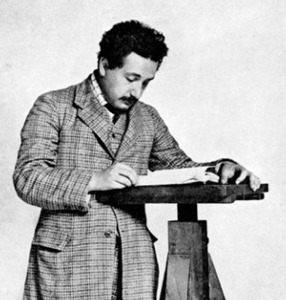After debating GM foods at its inaugural sitting in September, the Rational Parliament returns on 26 November to debate fracking and shale gas. This week, we're gearing up for the session by bringing you opinions from people on both sides of the argument. Today, the Parliament's host, Adam Smith, sets out the issues at stake. Inspired? Book your tickets for the event here.
The basics are pretty easy: engineers pump water and chemicals at high pressure underground to break apart shale rock and release oil and gas in a process called hydraulic fracturing (fracking). But the question of whether we should do this on a massive scale in Britain to help towards heating our homes is pretty hard.
Protestors spent their summer chanting ‘frack off’ down in Sussex but government ministers are cheerleading what they see as a new industry. Meanwhile, geologists and engineers continue their careful work to try to understand what is and is not possible with fracking in Britain. But I don’t really know what to think, so I've collected together a few questions I would like to see answered before we decide whether or not we should frack for shale gas—and some ideas for how these questions might be answered now.
Who’s pushing for and against shale gas?
David Cameron and George Osborne are thirsty for shale gas. That might be enough to put some people off. Most of us probably want to know exactly why the government is so keen to drill down, shake up our underground rocks, pump water between them and catch the gas released. I’d like to know which arguments our ministers have heard and which research evidence they've considered—plus which they've agreed with and which they've rejected. They should produce a report detailing all of this. And while they’re at it, they can include details of the people who sit on shale gas company boards while holding various positions in Whitehall at the same time.
Organisations against fracking need to do a similar project. I’d like to hear from the protesters who spent their summer waving banners down in Balcombe, about how they came to the conclusion that fracking should be blocked at all costs. I want to know how lobby groups like No Dash for Gas and Frack Off are funded and, in deciding their views on shale gas, how they balance their feelings and values with independent scientific research.
Do the benefits outweigh the risks or vice versa?
In America, shale gas is credited with reducing energy prices, reducing the amount of imported energy and polluting water supplies with methane, all at the same time. Americans have posted videos on YouTube showing that holding a lit match to tap water can set the water on fire. Meanwhile, Robert Jackson, a scientist in environmental change at Duke University, has demonstrated with research data that the drinking water of some people living less than 1km from shale gas wells is contaminated with stray gases. But that’s America; things are almost always more extreme there than in Britain. Right? Well, I’d like to know for sure. We need to know the risks and the benefits of shale gas, and we need these to be explained not by politicians or company spokespeople. Only independent researchers will do.
Will shale gas lower my heating bill?
If fossil fuels did not damage the environment, answering whether we should frack to extract shale gas would be a simple question of cost. If fracking produced cheaper energy, even for a short time, we’d probably jump in. In fact, we jump in for cheap stuff even when we know it damages the environment, from low-cost flights to convenience food. So for many people, the question of whether we should go for shale gas will only come down to cost. And it’s not hard to sympathise with someone whose heating bill keeps going up (probably because we’re all in the same boat on that one). But it’s impossible to know whether shale gas will lower our energy bills. The prime minister’s saying one thing and his energy minister is saying another.
Their voices are louder than those of economists or energy experts, so it’s hard to know what to believe. Before we decide, don’t you think it’d be sensible if someone independent of government and industry pulled together any research projects into this question and put the competing claims to the test?
Is there an alternative?
Asking whether we should ramp up the extraction of shale gas in the UK might be the wrong question. It’s a very limited question, founded on the assumption that we need more energy and more energy sources. It’s a bit like asking, “Do you take your tea with sugar or sweetener?” Many environmentalists are opposed to fracking because, they argue, we should explore alternatives to fossil fuels altogether and invest in renewable sources of energy or calculate how to reduce consumption altogether. Unless you have a financial stake in fossil fuels or you just don’t like the idea of change, it’s pretty hard to argue the logic of that. But our alternative energy sources are not yet efficient enough. This will only be achieved through increased public investments in research and development.
Perhaps those who argue for shale gas as an energy source that can buy us time while we transition into a future of greener energies could buttress their arguments by proposing that a proportion of revenues from shale gas should be dropped into a publicly managed R&D fund. This could be redistributed among scientists and engineers working on alternative fuels, including wacky ideas that companies wouldn’t fund.
What do most people think?
If we’re honest, opinions are like science: they’re provisional, based only on the best information we have at the moment. That’s why it’s great fun to talk to other people and calibrate your own views against theirs. And it’s why I can’t wait to take part in the debate on fracking for shale gas in the next sitting of the Rational Parliament, on 26 November in London. I’ll get to hear the thoughts of 100 people as they change their minds or make up their minds on the spot. If you want to listen to scientists and engineers and hear divergent views at the same time, you should come along too.
Book your tickets to debate fracking at The Rational Parliament here

